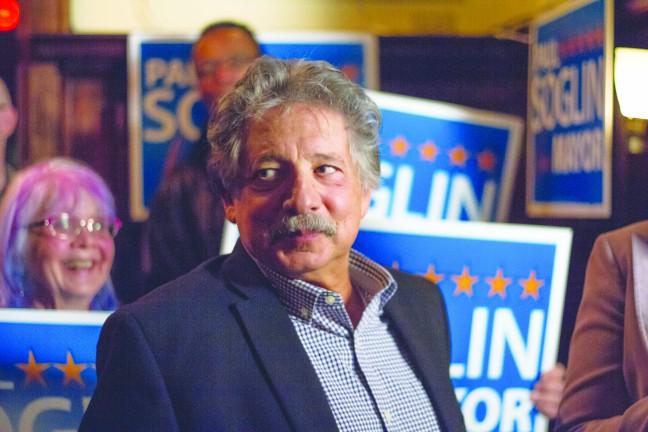Mayor Paul Soglin’s response to the 2013 Race to Equity report has finally arrived, essentially absolving Madison of any blame for Dane County’s rating as one of the worst places in the nation in terms of racial disparities.
His findings, released Oct. 5, aim to show that while the situation is still not ideal, there are obvious improvements in the living situation of Madison’s African Americans. These findings, of course, offer a much rosier view of Madison than Race to Equity’s 2013 report.
Though Soglin did not directly state his findings were a response to the 2013 report, his repeated concerns with those findings indicate he at least had some interest in proving them wrong. His report could be his means to do so.
When Soglin seemingly conflates his report and the Race to Equity report, another problem arises. These two measurements have different goals — Race to Equity report examines the racial divide of poverty in Dane County while Soglin’s fnidings tries to put Madison’s racial disparities in a national context.
The Race to Equity report states, “The one inescapable and pivotal finding that arises from all the numbers we have collected is the extraordinary degree to which poverty and ‘disadvantage’ in Dane County have become correlated with color — or, to put it in even more stark terms, the extent to which economic deprivation has become profoundly racialized.”
While the Race to Equity was a heavily data-driven finding, Soglin’s report is the opposite. The report itself has this disclaimer, “Note: City of Madison data is unreliable due to small sample size.”
Soglin’s treatment of these findings as fact is not only misleading, it further marginalizes Madison’s poor and black communities. What this report means to poor people and people of color is that they should be content in knowing that other places in America are worse than Madison.
In January 2016, Race to Equity released a report of all the measures adopted by the city and county, as well as efforts made by nongovernmental organizations, to help bridge the racial divide. Instead of focusing on bridging this divide, most programs at the city level focus on creating a more diverse government in hopes of creating more equitable legislation in the future.
While this is a good start, it’s obvious more can and will be done. As this report states, “The hope is that it will serve as a useful resource to: track progress as a community, identify areas that need further attention, and, most importantly, hold the community accountable for making sustained progress toward real racial equity in the county.”
Soglin releasing his “findings” undermines this progress. If our mayor truly wanted to end the racial divide for altruistic reasons, he would have accepted the original Race to Equity reports. Instead of wasting time on compiling his report, he would be more than content with measuring Madison’s progress based off Race to Equity findings.
But it would be unfair to suggest that Soglin does not realize there are racial divides in Madison. He does. In an Oct. 3 meeting with department heads, he said, “Some people make this tremendous leap that you’re now denying that there’s inequity in the community. That’s not the case.”
But recognizing a problem and actively supporting steps to end it are completely different phenomena.
The Race to Equity knows this. In a press release on Oct. 13, they stated, “Our report does not allow us to describe experiences with racial discrimination: what it feels like to be the only, or one of a few people of color in the office; the anxiety of feeling profiled, as well as the myriad of other lived experiences of people of color not articulated in the report. At best, it is an important, but incomplete picture.”
In 2017, the Race to Equity is set to release an updated version of their original findings, offering a glimpse another snapshot of the racial divide in Madison. It will not matter if this city has the worst racial disparities in the nation again. It matters that these disparities exist, we recognize it and we do something about it.
Aaron Reilly (areilly@badgerherald.com) is a sophomore majoring in social work and economics.


